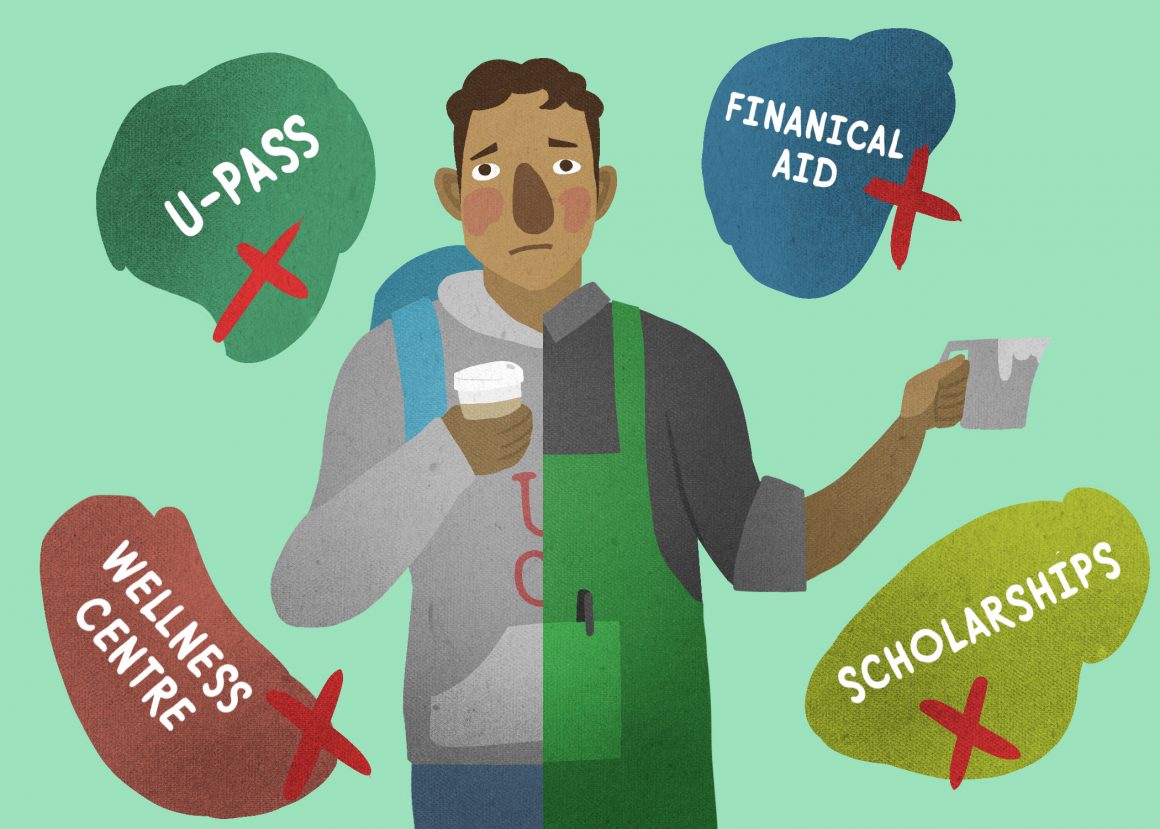
Drawbacks of part-time status a barrier to education
February 9, 2018 —
Though it comes with a lot of work, being a full-time student at the University of Calgary has its benefits. Full-time students — those enrolled in three or more classes per semester — receive access to a UPass, greater eligibility for scholarships and financial aid and full access to Students’ Union’s services like the Wellness Centre.
For part-time students, almost all of these perks disappear. Even previously awarded scholarships or government financial aid can be revoked if you drop from full- to part-time status during the year. This is especially difficult for students who work full-time jobs to put themselves through school. In these cases, those who need financial aid offered by student loans and scholarships the most are also most excluded by eligibility restraints.
Working while completing a degree allows students to develop relevant skills and puts them in a better position to enter the workforce after they’ve graduated. The U of C’s current policies disincentivize working full-time while completing part-time academics. The policies force students to pick between three options — taking on a financial disadvantage by taking a part-time course load and missing out on funding opportunities, overloading themselves with a full-time course load in addition to a full-time job or bypassing valuable job opportunities by focusing solely on academics. None of these are ideal and it’s an irresponsible position to put students in because each choice compromises an important part of student life.
A few students are notably exempt from the course-load restriction of full-time student status, namely SU executives, whose jobs require them to work 35 hours a week while remaining enrolled in at least one course.
It’s good that SU execs are allowed to carry full-time student status, but it’s a privilege that should be extended to all students who work full-time hours while completing their academics. There are countless students who fit that bill and they merit the same exemption that’s already being granted to others.
Graduate programs and professional degrees often choose students who remain full-time over those who make the tough choice to drop down to a lower course load. Scholarship committees often give awards to those who have a history of winning, which furthers distances part-time students from obtaining them in the future. Students can choose to study part-time for many reasons — they may have to prioritize taking care of dependents, their health or any other number of personal concerns that are entirely valid reasons for needing time away from school. Taking time for these issues should not detract from students’ future prospects.
The U of C should create a process through which students working full-time jobs while taking a part-time course load can obtain an exemption to their part-time status. In relation to students’ well-being and fairness, it makes sense given that the privilege is already extended to other students. The students whose personal lives necessitate part-time status already face enough barriers to post-secondary education. This would be an easy way to eliminate one of these barriers.
— Jason Herring, Gauntlet Editorial Board
